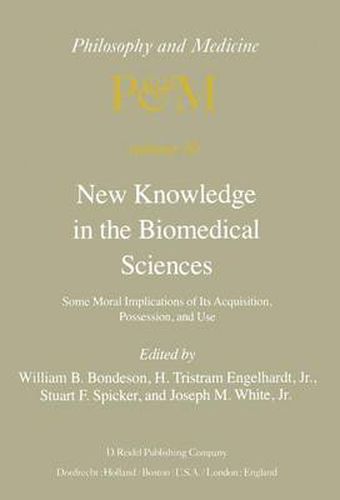Readings Newsletter
Become a Readings Member to make your shopping experience even easier.
Sign in or sign up for free!
You’re not far away from qualifying for FREE standard shipping within Australia
You’ve qualified for FREE standard shipping within Australia
The cart is loading…






This title is printed to order. This book may have been self-published. If so, we cannot guarantee the quality of the content. In the main most books will have gone through the editing process however some may not. We therefore suggest that you be aware of this before ordering this book. If in doubt check either the author or publisher’s details as we are unable to accept any returns unless they are faulty. Please contact us if you have any questions.
The spectacular development of medical knowledge over the last two centuries has brought intrusive advances in the capabilities of medical technology. These advances have been remarkable over the last century, but especially over the last few decades, culminating in such high technology interventions as heart transplants and renal dialysis. These increases in medical powers have attracted societal interest in acquiring more such knowledge. They have also spawned concerns regarding the use of human subjects in research and regarding the byproducts of basic research as in the recent recombinant DNA debate. As a consequence of the development of new biomedical knowledge, physicians and biomedical scientists have been placed in positions of new power and responsibility. The emergence of this group of powerful and knowledgeable experts has occasioned debates regarding the accountability of physicians and biomedical scientists. But beyond that, the very investment of resources in the acquisition of new knowledge has been questioned. Societies must decide whether finite resources would not be better invested at this juncture, or in general, in the alleviation of the problems of hunger or in raising general health standards through interventions which are less dependent on the intensive use of high technology. To put issues in this fashion touches on philosophical notions concerning the claims of distributive justice and the ownership of biomedical knowledge.
$9.00 standard shipping within Australia
FREE standard shipping within Australia for orders over $100.00
Express & International shipping calculated at checkout
This title is printed to order. This book may have been self-published. If so, we cannot guarantee the quality of the content. In the main most books will have gone through the editing process however some may not. We therefore suggest that you be aware of this before ordering this book. If in doubt check either the author or publisher’s details as we are unable to accept any returns unless they are faulty. Please contact us if you have any questions.
The spectacular development of medical knowledge over the last two centuries has brought intrusive advances in the capabilities of medical technology. These advances have been remarkable over the last century, but especially over the last few decades, culminating in such high technology interventions as heart transplants and renal dialysis. These increases in medical powers have attracted societal interest in acquiring more such knowledge. They have also spawned concerns regarding the use of human subjects in research and regarding the byproducts of basic research as in the recent recombinant DNA debate. As a consequence of the development of new biomedical knowledge, physicians and biomedical scientists have been placed in positions of new power and responsibility. The emergence of this group of powerful and knowledgeable experts has occasioned debates regarding the accountability of physicians and biomedical scientists. But beyond that, the very investment of resources in the acquisition of new knowledge has been questioned. Societies must decide whether finite resources would not be better invested at this juncture, or in general, in the alleviation of the problems of hunger or in raising general health standards through interventions which are less dependent on the intensive use of high technology. To put issues in this fashion touches on philosophical notions concerning the claims of distributive justice and the ownership of biomedical knowledge.